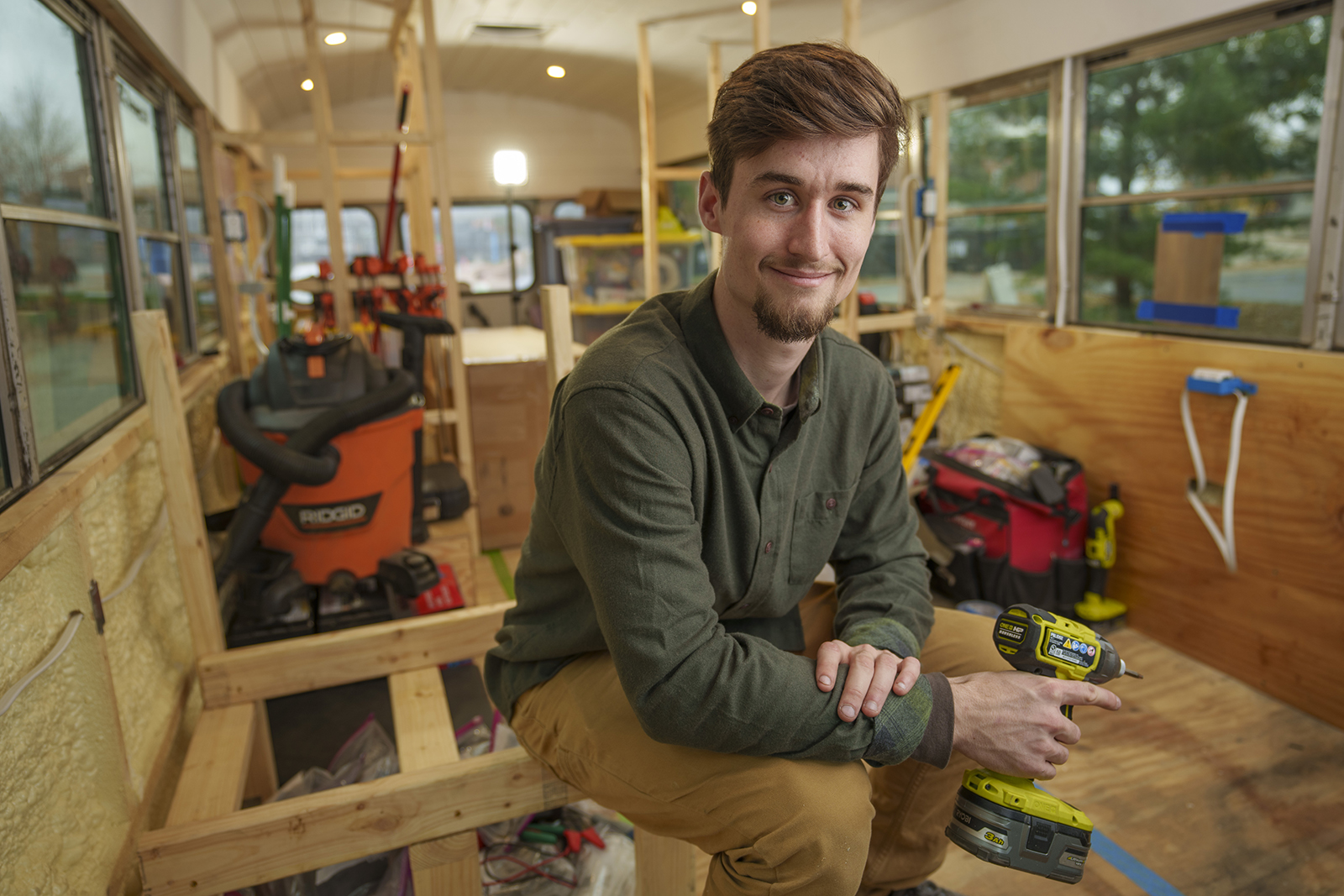By Clay Skipper, BA’12
Before arriving at Vanderbilt for his first year, Logan Glazier achieved an important life milestone: He bought a car. Well, a school bus, to be more precise. It was headed for a scrapyard after making stops at a school, a daycare, a camp and, finally, Facebook Marketplace, where Glazier found it. One $3,400 Venmo charge later—and one long car ride back and forth between his home in Maryland to the bus in New Jersey—and the 30-foot, 10,000-pound vehicle was his. He planned to turn it into an RV or a tiny home, joining a growing movement of people who are repurposing school buses into mobile living quarters. “Skoolies,” they’re called. Only he wanted to take a slightly different approach. “I hadn’t seen anyone focusing on the sustainability side of it,” he says.
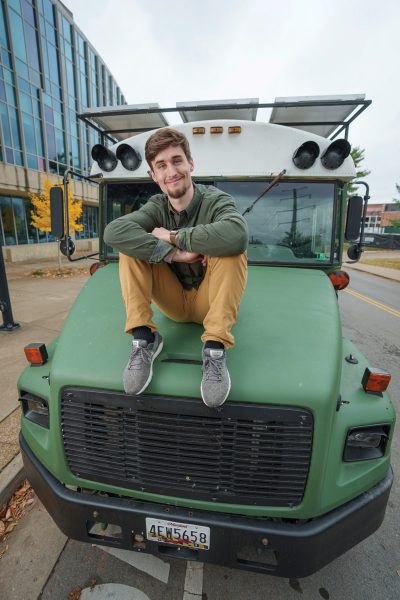
He got to work. He studied solar power for months before making the decision to buy and mount an 800-watt solar panel kit on the roof. When the bus is parked, it can run entirely on green energy. He rescued as many supplies as he could from construction project leftovers—materials that otherwise would have gone to a landfill.
Then he ran into a problem. He wanted to add a roof rack to hold gear, but there was a lot to figure out: How much weight could the bus bear? How many steel supports was he going to need? What size steel should he use? Luckily, he’d landed in the exact place to answer those questions: the Vanderbilt School of Engineering, where he was working toward a major in civil engineering with a concentration in structures. He used what he was learning in class to answer his questions about the roof rack.
“It’s really empowering,” says the 20-year-old junior. “It’s easy to write classwork off as some pointless math on paper, but then you put it into practice and actually see that, wow, I know this is going to support the amount of weight I need because I’ve done the math and used all the knowledge in class to put it into reality.”
EXPERIENTIAL LEARNING
Glazier’s experience is what many educators might call the ideal result of education: the ability to take what’s learned in a classroom—be it something specific, like how to build a roof rack, or general, like critical thinking skills—and apply it in the outside world. That ideal is exactly why, when Vanderbilt rolled out a strategic plan in fall 2014, it put a greater focus on experiential learning. That plan emerged as Immersion Vanderbilt.
“We know that those kind of hands-on learning experiences are some of the best ways to learn,” says Dan Morgan, a principal senior lecturer in earth and environmental sciences and associate dean in the College of Arts and Science.
IMMERSIVE EXPERIENCES
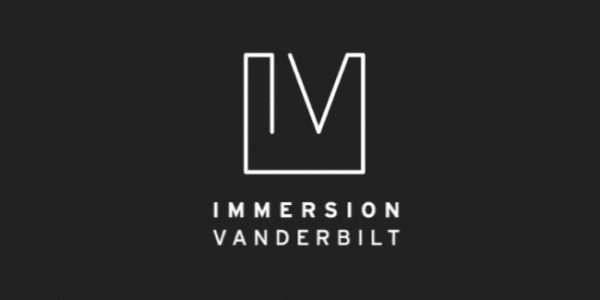 The Vanderbilt administration believed in it enough that they decided to make it part of the school’s curriculum. Because of pandemic delays, it wasn’t officially instituted as a graduation requirement until the Class of 2023, but now every Vanderbilt student hoping to walk across the stage and receive their diploma must participate in a program that is composed of two main components: some form of immersive experience and a final project that demonstrates what they learned through that experience.
The Vanderbilt administration believed in it enough that they decided to make it part of the school’s curriculum. Because of pandemic delays, it wasn’t officially instituted as a graduation requirement until the Class of 2023, but now every Vanderbilt student hoping to walk across the stage and receive their diploma must participate in a program that is composed of two main components: some form of immersive experience and a final project that demonstrates what they learned through that experience.
There are six types of immersive experiences: study abroad; community and civic engagement; leadership and professional development; innovation, arts and design; research; and internships. All of the types are meant to push students toward distinct learning goals: interacting with diverse perspectives, understanding systems of power and inequity, thinking critically, reasoning ethically, engaging intellectually and participating in integrative learning. Students must declare their intended Immersion Vanderbilt experience by the end of their sophomore year, and they must work with a faculty adviser to complete their final project by the spring of their senior year.
Carolyn Floyd, senior director, Office of Experiential Learning and Immersion Vanderbilt, says the experience should have a sense of “ongoing engagement”; volunteering once at a food bank isn’t enough, but being involved repeatedly might be. “That gives the student time and the depth of experience to really undertake learning in a meaningful way,” she says.
STUDENT-LED, FACULTY-MENTORED
The culminating project is also meant to reverse the typical course of education: Instead of the teacher determining the curriculum, the student thinks independently about what they learned and about how to best represent that knowledge. This isn’t to say that the students are on their own. Their advisers—drawn from the university’s world-class faculty—mentor them closely, providing ample face time and guidance.
“The goal is for them to walk out of here with a mentor who can speak to their ability and how they pushed themselves and what their passions are,” says Floyd, who says that having a mentor who encouraged her interests outside the classroom when she was an undergrad might have led her to pursue her aspirations of becoming a veterinarian.
“The power of advising puts students in a position to realize that they are doing fine, that what they’re doing is meaningful and it matters—and that everything isn’t about GPA. There’s so much more that you can show. That’s what experiential learning does for students,” she said.
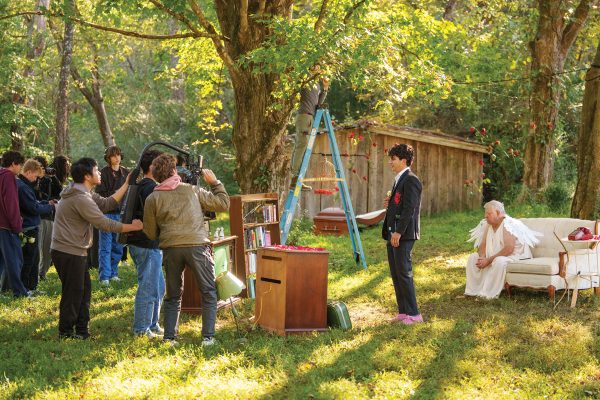
So far, students’ Immersion Vanderbilt experiences have taken them to Brazil to witness capoeira dance and to Antarctica to collect samples from glaciers. Others have stayed closer to Nashville, working with area schools to develop curricula, volunteering at the Women’s Center or doing medical research. Their projects have ranged from giving TED talks, to creating stress-relieving “smart clothing” that puts pressure on acupuncture points, to Glazier’s sustainable school bus.
In one case, a group of nearly 40 students across 22 majors even worked to build a nuclear reactor. (“When they first came to me, little alarm bells started going off in my head, like, ‘Oh, my gosh, this is going to get me fired,” Floyd says, laughing.)
Alexandra Sargent Capps, assistant professor of the practice of theatre, worked with one student to create a portfolio of sustainably made dresses inspired by the Greek columns she was learning about in her art history class. Sargent Capps saw the interdisciplinary approach as representative of what’s best about a liberal arts education: the ability to think for oneself, to combine seemingly disparate ideas and to create your own interpretation of things.
“I know liberal arts education is under fire,” she says, “but the bottom line is that it’s supposed to teach you to think outside the box, to build on your learning and understand threads that weave through different areas of study.”
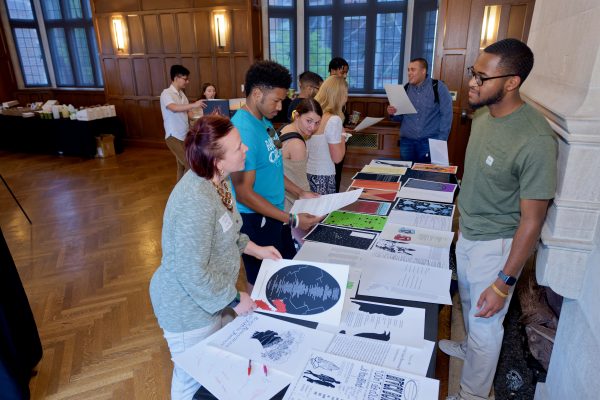
Morgan agrees, saying that he has seen Immersion Vanderbilt push students to take more ownership of their college experience.
“One of the goals of Immersion Vanderbilt is that every student should feel like they are taking more control of their educational direction,” he says, adding that tremendous growth happens when students go into the field and take their own samples, as opposed to working with samples that are handed to them. It’s the first time many of them realize they could be a geologist, as opposed to just studying geology. “You’re not just a student anymore, you become a doer,” he says. “You’re the one doing it now. You’re taking a step from passive to active learning.”
PRACTICAL APPLICATION
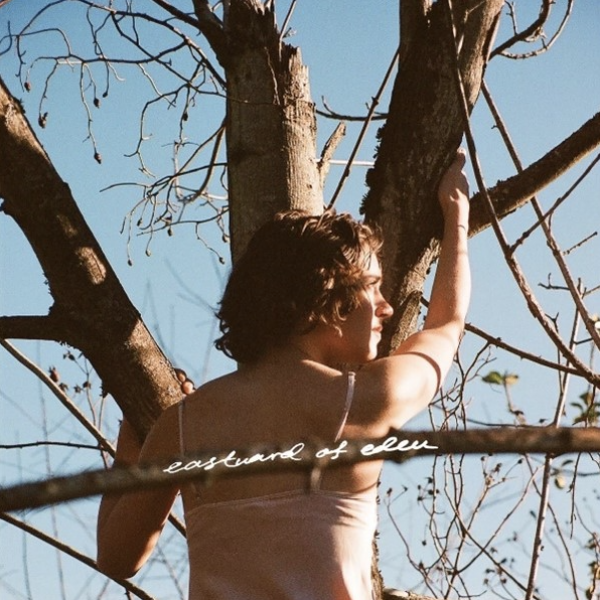
Amelia Day, a senior English major, recorded a six-song debut EP called Eastward of Eden for her Immersion Vanderbilt project. The acoustic title track has more than 504,000 streams on Spotify. “I can’t think of any experiences I had that would have prepared me for that other than just doing this project,” says the 21-year-old, who in November released another EP, titled Little One.
“You can talk about business and marketing as much as you want in the classroom setting, but until you actually do it—see what works, what doesn’t work—you aren’t fully learning.”
A word that pops up repeatedly when you talk to students and faculty about Immersion Vanderbilt is agency. As a bridge from high school to the professional world, a university prepares students not just to be better thinkers, but to be more independent. Floyd says that one of the “huge benefits” of Immersion Vanderbilt is that it puts the student in the driver’s seat. While there are requirements for the program, they are just steps to completion; it’s up to the individual student to decide how to achieve those steps. “They get to be the writer of their narrative,” she says. “They get to say, ‘This is what was valuable about my time,’ not just, ‘This is what the checked boxes are that I think you want to see.’”
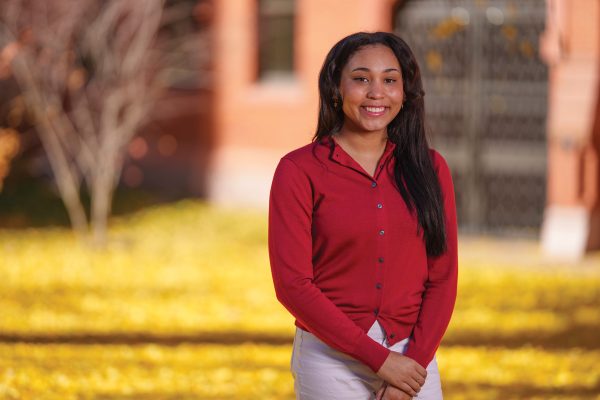
Lexi Blakes, a senior psychology major, remembers that she first heard about Immersion Vanderbilt as the first step in “transitioning from learning in a classroom setting and a textbook, to using what you learned in class. It was: ‘How are you going to do this in your careers? How are you going to take that step beyond learning? How are you going to apply it?’” She admits that for ambitious and often overloaded students, Immersion Vanderbilt can sometimes feel like yet another thing to do—but she also knows that doing it will benefit her in ways that are different from her time in the classroom.
“On my bad days, I’m still like, ‘Ugh, why do I have to do that? That’s so annoying,’” she says, laughing. “But on my good days, I think it’s good as a student to do something that you have total agency over. It’s always good to make something from scratch or make something that you can call yours. After being able to do that, when I go into the working world, I will have a little bit more confidence. I’ll know I did something at school already, and things won’t be as scary.”
Blakes has completed two qualifying immersive experiences: internships at Toyota and at a marketing firm. And even though she has not yet decided on a culminating project, she’s already learned lessons that will prove valuable beyond Vanderbilt—about herself (she’s a better communicator and writer than she thought) and about her future career. “It’s as beneficial knowing what you don’t want as knowing what you do want,” she says.
STEPPING OUTSIDE OF THEIR COMFORT ZONE
As junior Anders Westerman learned, the opposite can happen: Trying something unfamiliar can stoke interests you didn’t know you had. The human organizational development and Spanish major and business minor decided to get involved with the Vanderbilt Fusion Project, the aforementioned nuclear reactor idea, despite not being a STEM student.
He co-leads the project’s communications and finance team.
“That’s the coolest part about Vanderbilt, and it connects to immersion, the way that they’re pushing you to do something or try something you wouldn’t normally do, or just be willing to build something,” he says. “A lot of industries and lines of work would’ve scared me, in the sense that I’d say to myself, ‘That’s not my area of expertise.’”
Floyd says this is a key part of Immersion Vanderbilt, too, and it’s why they made it a requirement: It pushes students out of their comfort zone and into new ways of learning. “Students here don’t need to be prodded very hard to do really cool things,” she says.
“But there are some students who get here, and they are struggling by the time they get to junior or senior year. They’re not banking a lot of experiences. We try to tell them that it really is about your learning. And a failed experiment is still a successful Immersion Vanderbilt experience—because you learned something. And that’s the goal. This isn’t for them to go out and change the world. Everybody doesn’t have to build a bus or a nuclear reactor. What they need is to have something that’s meaningful to them that they can talk about that demonstrates what they did with their time at Vanderbilt.”
Of course, building a bus or a nuclear reactor is okay too. Logan Glazier, the civil engineering student who is involved with both of those projects, sees a through-line from his time at Vanderbilt working on the bus to his future professional ambitions.
He remembers asking himself at the beginning of the project: “How can I make this [bus] something that uses renewable energy and all of my engineering knowledge, put it into action here, and have this hands-on experience to try and build something I’m proud of that uses all of these sustainable aspects that I want to incorporate in work later in life?” He also credits the bus with being a stepping stone toward his future by helping him land last summer’s internship: working with an engineering company to design superstructures for bridges.
“I didn’t get many questions about coursework or the other things I advertised when I was applying for an internship,” he says. “The Fusion Project and the bus were the two most-asked-about things, because they’re unique. [Employers] are curious to ask about the problems you encountered and how you overcame them.”
The engineering company has invited Glazier to join them again this summer, so he’ll be back in Madison, Wisconsin, using what he learned at Vanderbilt, and through his immersion project, to keep growing as an engineer. How does he plan to get there? His bus, of course. “Some of the friends that I have there are keeping a driveway spot open for me,” he says.
